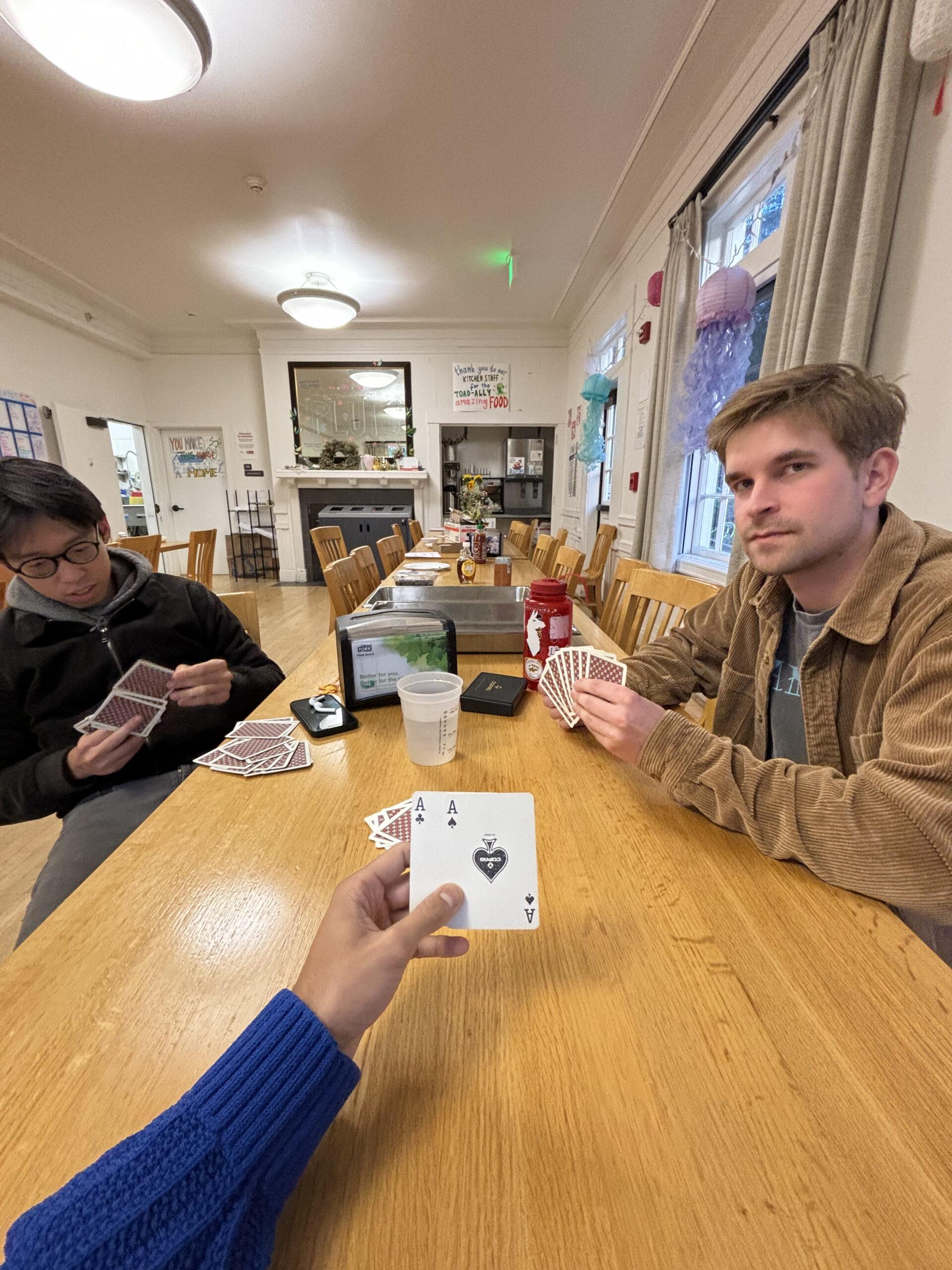For this week’s critical play, I played “Bullshit” (also known as “Cheat” or “I Doubt It”) — a classic card game that uses the French-suited playing cards to curate a dynamic of bluffing and deception! Although the creators’ of the game are unknown, the game seems to have been passed down through decades of oral tradition, and is widely played by older teenagers, young adults, and families. Regardless of age, it’s a classic card game that comes about when a small group seeks banter or wants to test how well their loved ones can bluff (or can call out bluff).
So, how does “Bullshit” relate to our team’s game design concept? Our teams’ game, “I Will Be President” is a territorial style game that leverages policy cards to influence the distribution of power in specific territories on our game board. When picking up policy cards, since actors have the ability to negotiate (i.e., trade active policies, unused policies), they have the ability to pretend that they have specific policies or cards to influence the decision-making of their own competition, and “bluff” the amount of power they actually have. For example, a candidate might be incentivized to bluff a policy card that is a 10X multiplier of votes, to build a partnership or become allies with their competition, and then betray them. In sum, false promises can be made, and such promises can influence the outcome of votes and their election status.
Hence, the need to low-level test the mechanics of “bluffing” is critical. What types of liars exist? Which gameplay experience makes someone risk averse in calling another out? Is there a temporal relationship between number of lies and “gains”/“slumps”? Aside from narrative complexity, key differences between the games are discussed below!
While both games require deceiving others and establishing a sense of credibility between distinct actors, our game unlocks another dimension of collaboration and alliance-making where actors can choose to bluff cooperatively or selfishly to win territorial control and thus win their election. On the other hand, “Bullshit” solely relies on the latter, with people taking a deconstructive approach where they want to get rid of their cards and “escape” the game to win. In other words, our game focuses on bluffing to “build” rather than “destroy”.
Further, in our three rounds of “Bullshit”, I observed that the players who lied the most ended up nearly last place every time. And, the players who held the self-awareness to become risk-averse after a series of failed lies were able to make appropriate come-backs in the game. For example, when a competitor started the game by calling three false “BS’s” in a row, they had accumulated more than 50% of the deck, beginning with a liberal approach with calling people out when they were losing (psychologically falling into the sunk cost theory), but then recouping their hand and eventually shifting to an extremely conservative approach skewed towards when they were most likely to win the game.
Moreover, people who were conservative with when they called “BS” typically ended up being right more times than not. This was personally my strategy, where I only called “BS” less than ~10% of the time, and players psychologically responded saying “How are you always right?”, affecting their perspective on my ability to call one’s bluff and consequently altering their own gameplay. This type of fun resembled submission, where players who were correct with their “BS” a majority of the time indirectly forced players to continue reaping the havoc of their failed bluff (namely, forcing them into a cycle of getting rid of cards and acquiring them).
Contrasting this type of game play with Egyptian Rat Slap, where the identity of the cards are hidden to both players and players ought to slap the deck if it is a pair or sandwich (namely, with the goal to acquire as many cards as possible), “BS” capitalizes on catching others’ in a lie via verbal and non-verbal cues and less on one’s own ability to recognize patterns, speed, and implement strategy. To improve the game, I’d propose adding another dimension of time to the game (i.e., incorporating a “flash” or “speed” round of “BS”). This would also curb the flaw of card counting, which players in our game did after a substantial amount of cards exchanged hands. Further, it would be interesting to place a penalty (namely, kicked out of the game or a multiplier effect of cards) if a failed bluff was called three times in a row by the same player. This would even out the distribution of all cards throughout the game as players would be less inclined to continue calling bluffs brazenly (due to the sunken cost theory), increasing the intensity of calling of a bluff and the player sensation of getting it correct/incorrect.



